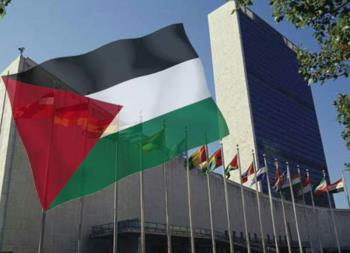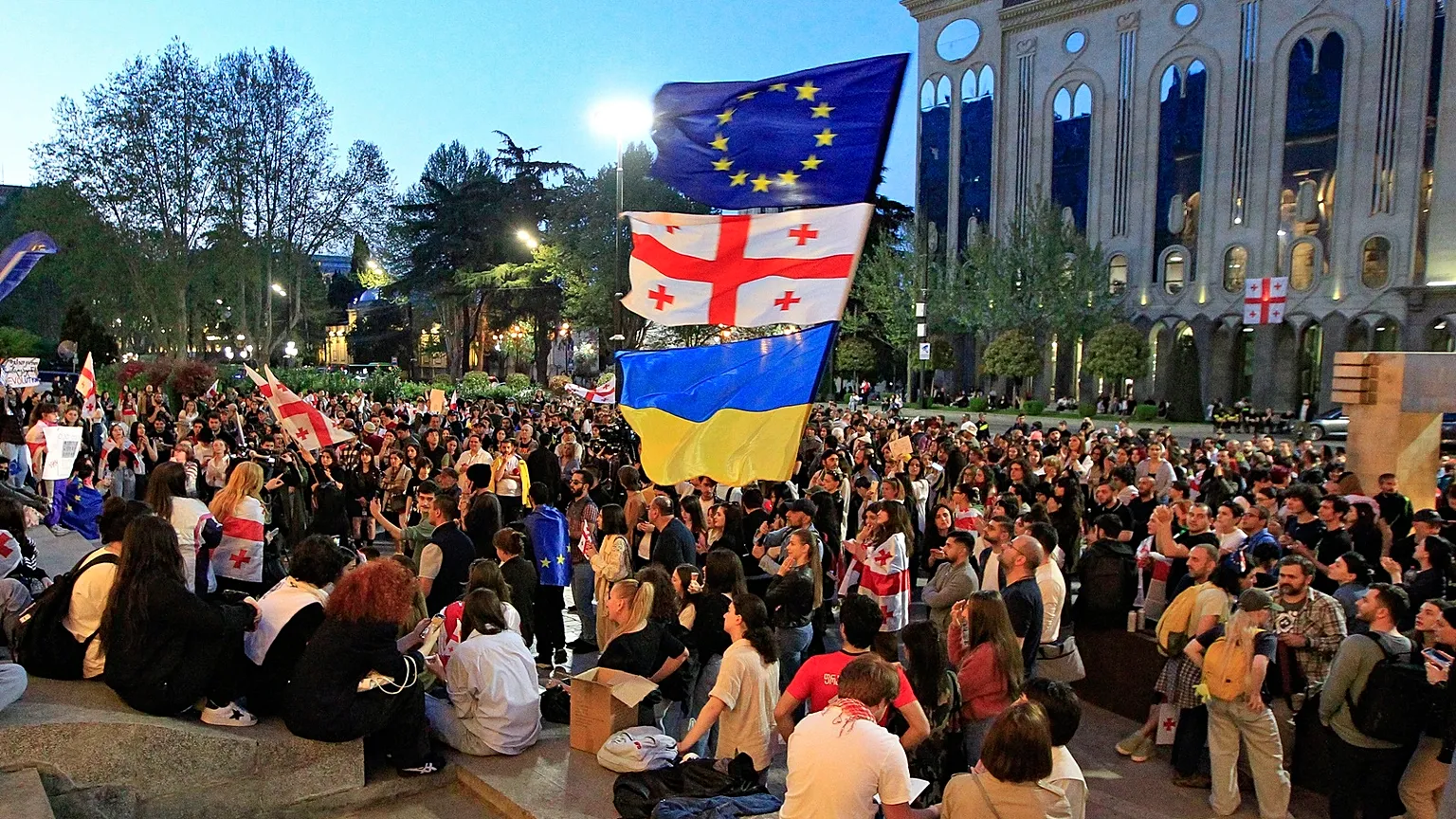Alwaght- Only two weeks to the local elections in Georgia, the country is hit by a new wave of protests, making the small Caucasian nation the focus of geopolitical developments.
Roots of the current protests in Georgia return to the November 2024, when the government led by the Georgian Dream party said it will postpone the talks for accession to the European Union until 2028. The decision, running counter to aspirations of a portion of the society, drew public anger in the country.
The demonstrations flared up when the government in reaction to a deadline set by the EU — until August 31 which warned that if the government's authoritarian policies continues, it will revoke visa-free travels to the Georgian citizens— took a controversial measure and froze bank accounts of a number of important pro-European non-governmental organizations (NGOs).
For the opposition groups, joining the EU is the key to sustainable security, development, and democracy. That this why they interpret the postponement of the talks with the EU as a sign of strategic shift and they try to desuade the government and force it to return to its European obligations.
West behind Georgia protests
While the protests in this country appear on the surface to be a national reaction against the government's policies, their nature bears a strong resemblance to the type of opposition that Western powers have historically planned and directed in former Soviet republics. The response from European countries further indicates that Western actors are attempting to steer this anti-government wave.
In recent weeks, the European Union and several European nations have directly supported the protesters. The foreign ministers of Germany, France, and Poland, condemning what they termed the "excessive use of violence against demonstrators," have called for the protection of assembly rights and the release of opposition activists.
Furthermore, Denmark and Baltic states such as Lithuania and Estonia have imposed sanctions on Georgian officials. The US also suspended its strategic partnership with Georgia after the government postponed EU accession talks.
These actions, combined with Western media and diplomatic pressure, have in practice exacerbated the political crisis and widened the rift between the government and opposition.
The West has previously intervened in former Soviet republics through so-called "color revolutions" or "velvet revolutions." Georgia's 2003 "Rose Revolution" and Ukraine's 2004-2005 "Orange Revolution" are notable examples where Western financial and political backing led to the rise of pro-Western governments.
Many analysts now suggest that, given the similarities between the current protests and past events, the West may once again be attempting to orchestrate a form of "velvet revolution" to topple Georgia's current government, which is viewed unfavorably by the West due to its closer policies to Russia.
The direct support from Europe and the US for the protesters indicates that the primary Western objective extends beyond merely defending civil liberties. Highlighting the Georgian government's divergence from a European path, amplifying the demands of government opponents, and providing a platform for Western media to galvanize protesters are all part of a systematic pressure campaign.
In parallel, images of protesters waving EU and NATO flags on the streets of Tbilisi serve as a clear symbol of the opposition's alignment with the Western project for Georgia. This policy aims to weaken and destabilize the government, steering the country toward Europe and NATO as part of a broader effort to curb Russian influence.
While the protests have genuine internal roots, it is impossible to ignore the fact that Western support has instrumentalized for geopolitical pressure. As seen in the experience of the Color Revolutions, leveraging social discontent and transforming it into a political movement to change governments is a familiar playbook for the West.
Thus, it can be argued that in today's Georgia, not only are the people's demands at play, but a larger scenario is also unfolding—one aimed at redesigning the country's political structures to serve European and American interests while weakening any inclination toward Russia.
The Caucasus, due to its strategic location between Europe and Asia and particularly its proximity to Russia, holds significant importance for the West. Georgia is a country that could aid NATO's eastward creeping. Should the central government in Tbilisi lean toward Russia, it could increase Moscow's influence in the region. At a time when tensions between Moscow and NATO have peaked, this would hinder the West's objectives in the Caucasus.
A segment of Georgian society desires closer ties with Europe and membership in Western institutions. This is not merely a cultural or identity-based aspiration but a political one. By supporting the opposition, the West can bolster the legitimacy of the popular protests and increase pressure for reforms that align with its own demands.
It is for this reason that, on the eve of Georgia's local elections, the OSCE's decision to refuse monitoring the vote, citing a belated invitation, has opened a new chapter of tensions between Tbilisi and the West. The Georgian government has accused the West of using this move to discredit the elections and lay the groundwork for a new "revolution."
Some observers believe the West's objective is not necessarily the direct overthrow of the current government but rather to apply pressure for a return to democratic commitments, integration with the EU and NATO, and the preservation of civil liberties. However, the overt and covert Western support, sanctions, and focus on electoral issues and restrictive laws have led many to conclude that, in practice, the West is seeking to strengthen the opposition, diminish the government's legitimacy, and engineer political change—especially if the current government continues on its present course.
Anyway, West's focus on human rights, democracy, election transparency, and freedom of press and NGOs can serve as an instrument to shore up the opposition. This support does not mean a coup or ouster of the current government, but it will build considerable pressure on the government to review its policies and behavior.



























